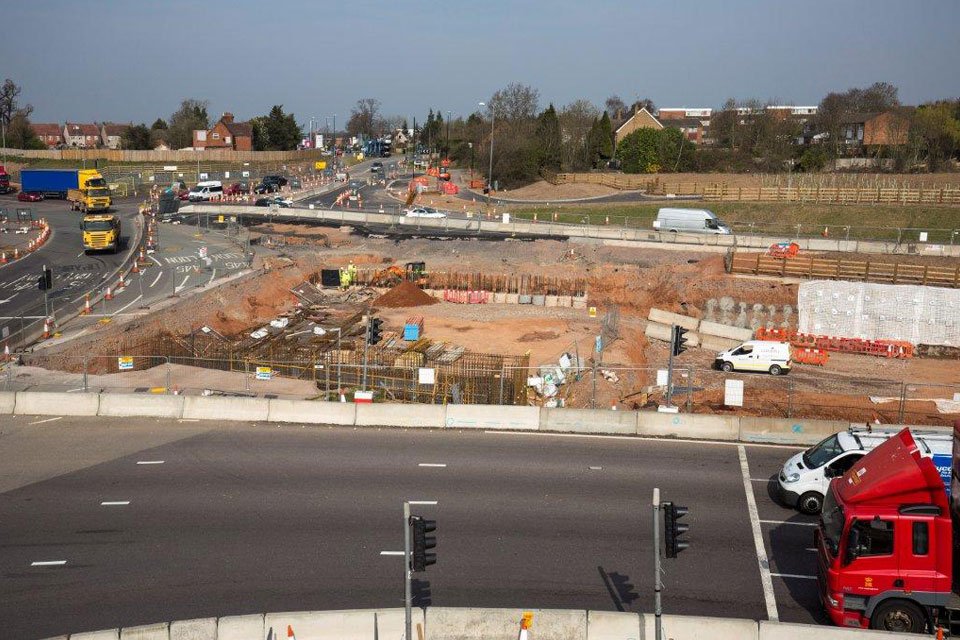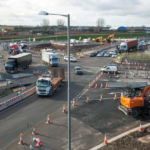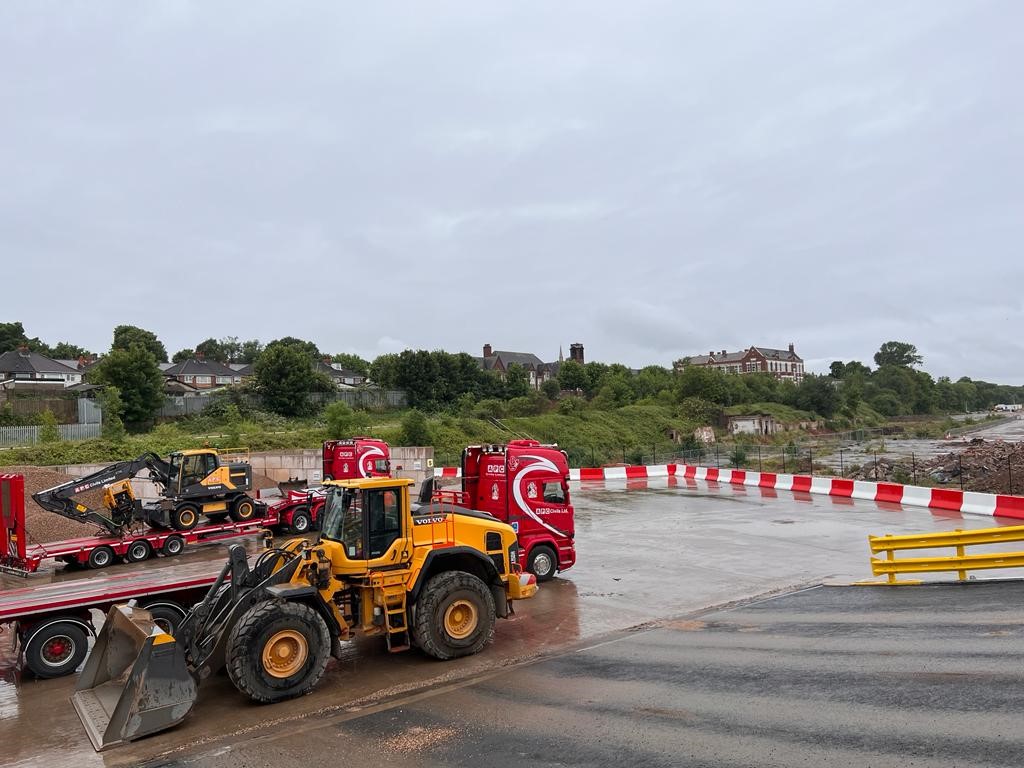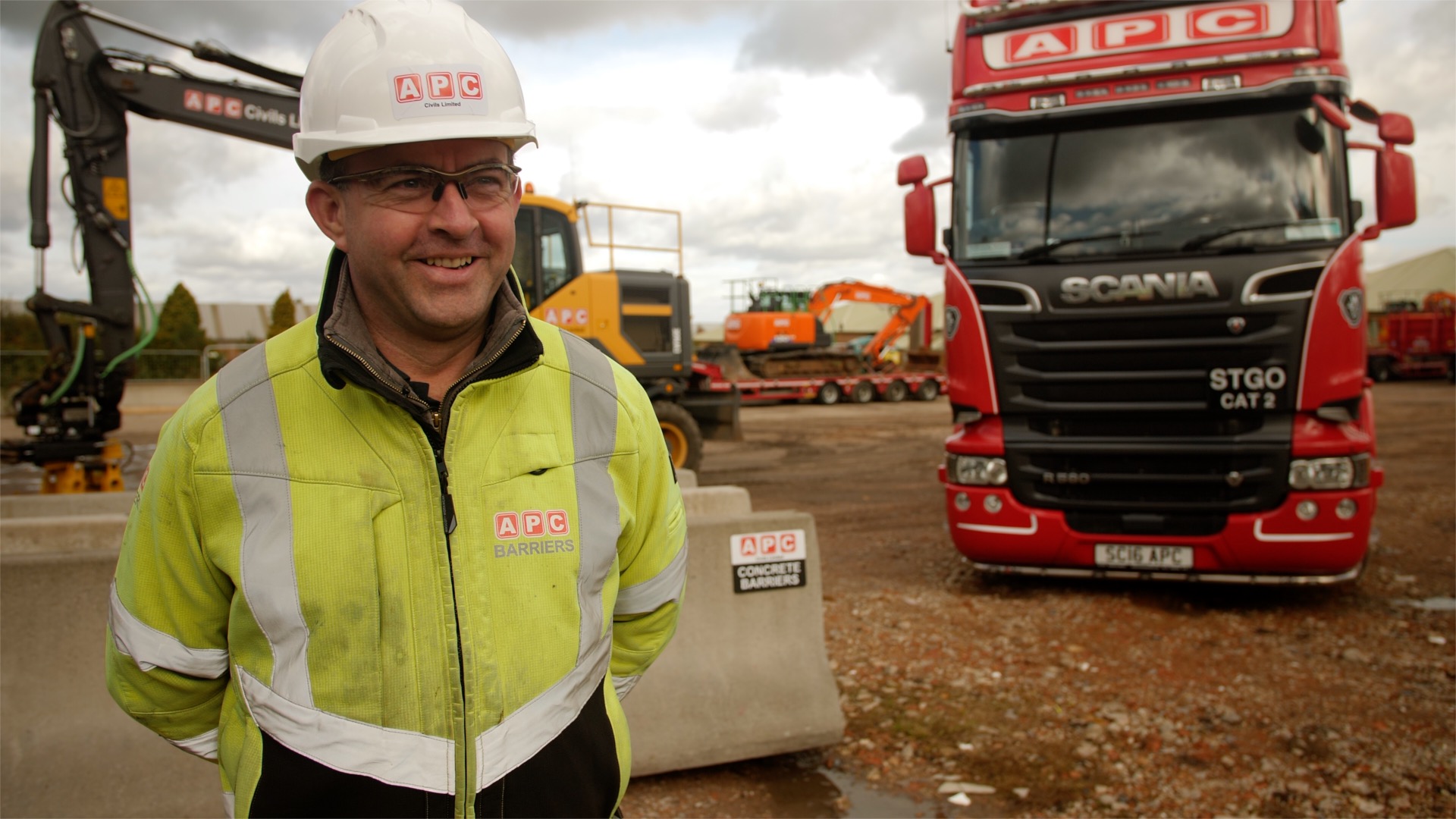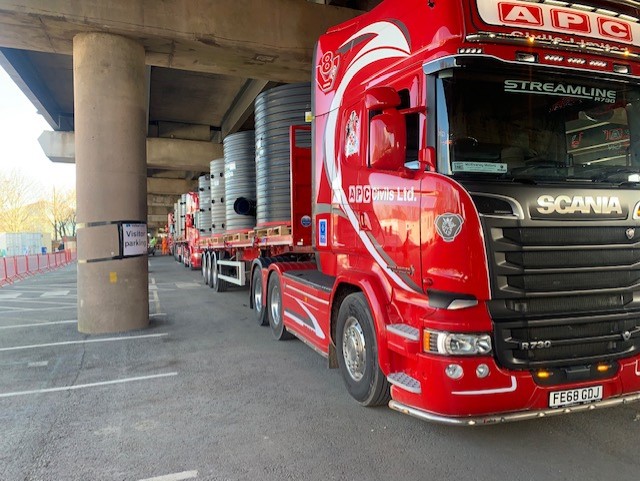
A45 / A46 Tollbar End Roundabout, south west of Coventry is one of the most heavily congested junctions in the West Midlands region and identified by Highways England as a major pinch point on the road network. The high levels of traffic using this roundabout and surrounding roads causes major delays and queues on a daily basis. Previous improvement works in 2001 included introducing traffic lights and changing road markings which helped to alleviate the number of accidents, however, this was seen as a temporary solution and by 2011 the roundabout was not coping with traffic levels. Future increases in traffic volumes would make the existing congestion worse and lead to increased driver stress.
In January 2014, Galliford Try commenced works to improve the Tollbar End Roundabout and surrounding road network to reduce congestion and improve capacity. A new two lane dual carriageway underpass would be constructed between the A46 Coventry Eastern Bypass and the A45 Stonebridge Highway as part of an extensive package of works to reduce the volume of traffic using the roundabout and increase capacity of traffic throughout the vicinity.
The end result of three and a half years of road improvements to Tollbar End would be of enormous benefit to commuters, hauliers, local businesses and residents with improved journey times and reduced congestion. However, the challenge for Galliford Try throughout the construction period, was to develop an active traffic management plan throughout the planned construction phases to keep two lanes of traffic open at all times since 86,000 vehicles passed through the site daily. The team needed to source an adaptable temporary road restraint system to protect their workforce, pedestrians and cyclists from the high volume of traffic as work progressed on the site.
“Safety at work is our number one priority. Our workers put themselves at risk daily working on such a busy road network and we expect each worker to go home every night, safe and unharmed at the end of every shift” says Mark Rainbow, Traffic Management and Logistics Manager at Galliford Try “so finding a robust road restraint system that has the capacity to be regularly relocated as the traffic management phases progress is of the utmost importance”.
Initially, steel and concrete temporary barriers were considered and both were used at the start of the project but due to the complexity of the traffic management plan and live traffic lanes moving on a frequent basis, the concrete barrier system had the competitive edge due to its speed of installation and relocation that it continued to the be the principle road restraint system used on site.
APC Civils Limited from Nottinghamshire worked closely with Galliford Try to supply and install their System Spengler vertical concrete barrier road system and were able to offer a flexible and responsive service to install and relocate concrete barriers around the Tollbar End site. The advantages of APC’s barrier system are the unique installation technique which secures barriers together, eliminating the use of secondary connectors increasing the speed of installation and enabling road lane changes to be carried out within tight road closure deadlines and confines.
Shane Clarke, Operations Director from APC Civils states “concrete barrier installation productivity has increased due to our innovative hydraulic lifting equipment which position barriers in a single, secure lift eliminating the need for operatives to work at height”. This is another safety consideration recognised by Galliford Try, since safety on site is not just for Galliford Try’s workforce. Since APC Civils commenced barrier work at Tollbar End in February 2014, over 27,000 metres of concrete barrier has been relocated to keep two lanes of traffic open and protect the workforce building the new road system. The barriers have also been used to demarkate pedestrian pathways and cycle ways so all road users have a safe and zoned passageway through the road works.
“Ingenuity, strength and flexibility of the APC system has been the key to allowing the traffic management plan to progress as phases of construction are completed. The service provided by APC placing, moving and removing these barriers has always been quick, smooth, effective and efficient and they have been able to meet out demands day or night in order to minimise traffic disruption” finishes Mark Rainbow.
